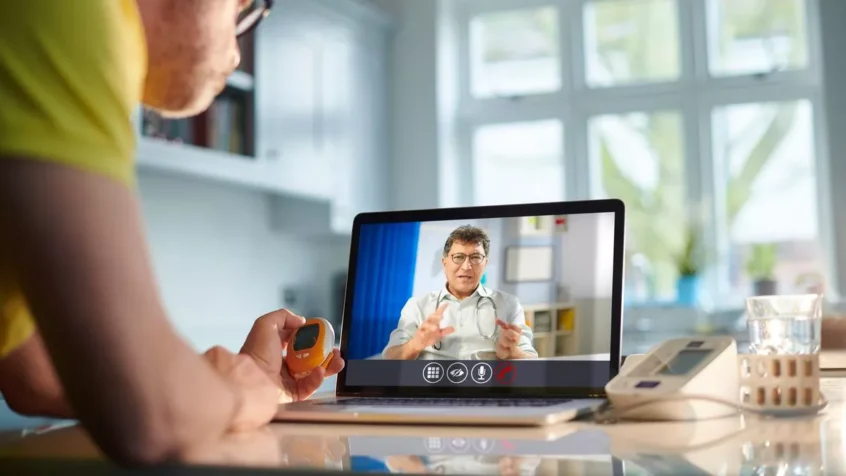Do you feel quite comfortable chatting to your GP online, or do you still prefer a face-to-face appointment?
It turns out most patients feel online GP consultations are quicker, more flexible, and more efficient than the traditional ones, according to the largest study of patient views carried out about the topic.
And men and older patients are particularly keen on online appointments, reveals research from Manchester University.
The team collected 21,467 written comments from almost 12,000 patients at 240 GP practices across England who used Patchs (patchs.ai), a popular online consultation system.
And they carried out hour-long interviews with 25 patients.
In the wake of the pandemic, almost all GP practices now use online consultations and patients are often forced to use them to contact a doctor.
But no in-depth research into how they feel about it has been carried out until now.
Lead author Dr Susan Moschogianis said: “Most of the patients in our sample said they preferred online consultations because they are more convenient, flexible, and efficient than in-person appointments for dealing with simple health problems such as rashes or colds.
“The primary benefit reported by most patients was the ability to receive a quick response to their query.
“And men in particular reported that they were more likely to contact their doctor this way. Perhaps surprisingly, many older participants found the system easier to navigate than expected and often preferred using it to contact their surgery than traditional methods. But not everyone was as positive.
“There were some who still wanted a return to traditional ways of accessing their GP practice… such as telephone and in-person visits.
“And poor communication about using online consultation systems often left patients feeling disappointed and frustrated.”
Senior author Dr Ben Brown from Manchester University commented: “Our findings provide new insight into why some patients prefer in-person consultations and why others prefer to use online.
“The way in which GP practices conduct online consultations and aspects of the technological design were found to be key drivers of positive patient experiences.”
Some patients such as those with autism, hearing loss and anxiety struggle when in face-to-face consultations and prefer online.
The same goes for men who find it a lot easier to open up about sensitive health problems online.
Using their findings, the Manchester researchers are drawing up specific recommendations for GP practices and online system designers so that they can ensure patients’ experience is comfortable and productive.

